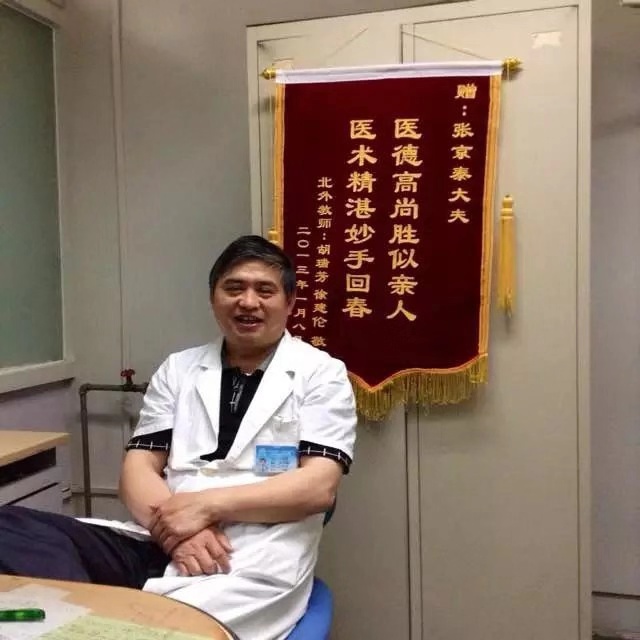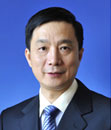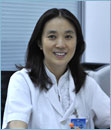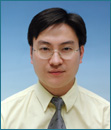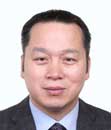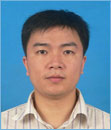医院简介
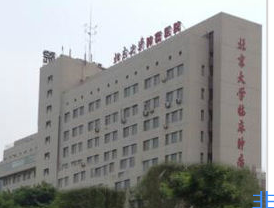
北京大学肿瘤医院(北京肿瘤医院、北京大学临床肿瘤学院、北京市肿瘤防治研究所)始建于1976年,是集医、教、研、防于一体的大型现代化三级甲等肿瘤专科医院。
院(所)是国家肿瘤学重点学科,是国家临床重点学科建设项目,肿瘤科、病理科国家临床重点专科建设项目单位;在多种中国常见肿瘤诊治方面居国内领先、国际先进水平;作为组长单位参与了胃癌、结直肠癌、肺癌、肾癌、黑色素瘤等诊疗规范的制订;主持和承担多项国家级重点研究课题,拥有教育部、北京市“恶性肿瘤发病机制及转化研究”重点实验室;是唯一承担北京地区癌症发病登记与生存统计,并向政府及WHO提供数据的中心;是北京抗癌协会、北京癌症康复会的挂靠和依托单位;近20位专家担任中国抗癌协会、北京抗癌协会、中华医学会肿瘤分会的主要领导以及各专业委员会主任委员或副主任委员。
全院现有在编职工1090人,其中专业技术人员1040人,占95.4%,高级技术职称人员234人,博士生导师38人,突贡专家8名(在职3名);享受政府特殊津贴者26名(在职5人);国家杰出青年3名;国家百千万人才工程人选2名;新世纪百千万人才工程市级人选3名;北京市跨世纪优秀人才5名;北京市科技新星人选18名。入选北京市卫生系统高层次卫生技术人才领军人才1名,学科带头人8名。学科带头人及业务骨干中90%以上为留学(研修)归国人员。
医院于1997年通过三级甲等医院评审。编制床位790张,现开放病床790张,29个临床科室,27个病区,14个医技科室。2013年住院人数4万余人次,年门诊量45万余人次。患者来自全国各地、港澳台及海外。
医院致力于乳腺癌、胃癌、肺癌、结直肠癌、肝癌、食管癌、恶性淋巴瘤、妇科肿瘤、头颈部肿瘤、骨肿瘤以及恶性黑色素瘤等各种肿瘤的诊断和综合治疗。倡导多学科协作,整合各科室医疗资源,自2002年开始,陆续建立以单病种为主的9个多学科协作组,尤其在消化系统肿瘤、肺癌、乳腺癌及疼痛与症状控制专业方面,积累了丰富的多学科协作诊疗经验,为患者提供规范的个体化综合治疗。
院(所)于2010年被批准为教育部“恶性肿瘤发病机制及转化研究”重点实验室。研究所设有8个研究室,1个中心实验室,1个临床实验室。建所以来,围绕我国常见恶性肿瘤特别是胃癌、乳腺癌癌变机理的研究、肿瘤预防与控制研究、肿瘤易感性和恶性生物学行为的研究及肿瘤生物治疗研究等主要科研方向,开展了大量基础和应用研究工作,在肿瘤学基础理论研究、常见主要肿瘤的临床诊断与治疗,胃癌、食管癌高发区现场的预防干预研究等领域均有创新与领先的成绩,在国内外颇具影响。主持和承担了“国家科技攻关”、“863”、“973”、“985”、“国家自然科学基金”等项目及北京市和其它部委的重点科研项目,已获市部级以上科研成果100余项,发表论文2800多篇。
我院为国家药物临床试验基地,2010年-2013年共承担144项药物类或医疗器械类临床试验,其中27项为国际多中心研究。
我院是全国肿瘤学博士学位授权点和博士后流动站。医学教育涵盖本科生、硕士生、博士生、博士后以及进修生、职工的继续教育。每年定期举办全国临床肿瘤医师进修班和国家继续教育项目全国性学习班。
院所在国内外具有日益广泛的影响,与许多国际知名肿瘤研究机构建立了密切的合作关系,每年不断有国内外专家学者来院参观、考察、讲学,进行科研协作与学术交流。院所也不断有科研与医技专业人员出国访问、进修、短期工作或参加国际学术会议。
北京大学肿瘤医院持续提升肿瘤多学科综合诊治能力与学术水平,建成基于转化研究的高水平诊疗体系及与国际接轨的医疗质量管理体系,成为患者首选的国际化肿瘤诊疗中心。医院愿以优秀的肿瘤学专业人才、先进的医疗设备、精湛的医疗技术、科学的医院管理、舒适的就医环境和人性化的关怀照顾,让每一位肿瘤患者在就医中获益。
Beijing Cancer Hospital
Medical Service:
Beijing Cancer Hospital is one of the famous large special hospitals in the field of cancer research and treatment. There are 660 hospital beds, which will be extended to 790 in 2008. A total of 26 clinical departments and 13 medical technological departments. The yearly outpatient visits are about 230,000 person-times, while the yearly hospital in-patients are about 28,000 person-times.
For the past many years, our hospital has been engaged in the diagnosis and treatment of various tumors, such as breast cancer, gastric cancer, lung cancer, colorectal cancer, liver cancer, esophageal carcinoma, malignant lymphoma, gynecological cancer, tumor of head and neck , bone tumor and melanoma. The hospital advocates the cooperation of multiple disciplines, integrate medical sources of all departments, and has established different cooperation groups for mono-disease including breast cancer, gastric cancer, lymphoma, and liver cancer, providing normalized and individualized combined treatment for the patients.
The hospital is a member of the national base for clinical pharmacology. From 2000 to 2007, the pharmacological institution of Beijing Cancer Hospital has completed 76 clinical trials, of which 52 belonged to domestic clinical trials, 10 belonged to international multi-center clinical trials, and 14 belonged to clinical trials for medical equipment. There are 50 on-going programs, of which 35 are domestic clinical trials, 11 are international multi-center clinical trials, and 4 are clinical trials for medical equipment. Now the hospital is performing 24 programs, including international clinical trials and domestic clinical trials for new drugs.
The breast cancer patients treated with conservative surgery in the Breast Cancer Center of the hospital have reached 51%. The Department of Gastrointestinal Surgery has developed multimodality therapy for gastric cancer and neo-adjunctive radiochemical therapy for rectal cancer. The Department of Hepatic, Biliary & Pancreatic Surgery has performed various kinds of hepatic and pancreatic operations with high difficulty, and advocated the multimodality therapy for liver metastasis of colon carcinoma. The Department of Thoracic Surgery has developed bisaxillary lymphnode dissection for carcinoma of gastric cardia, high level cervical excision of esophageal carcinoma, complex surgery of lung cancer such as plasty of pulmonary artery, and chest minimally invasive surgery. The Department of Respiratery Oncology has established the normalized chemotherapy regimens for lung cancer of advanced stage, making that the median survival and yearly survival rate of NSCLC and SCLC reach or approach the international level, respectively. The Department of Dastrointestinal Oncology has been engaged in promoting the normalized chemotherapy for gastric cancer and colorectal cancer. The Department of lymphoma & Hematologic Oncology has been walking in the front row in China in the field of diagnosis and treatment of malignant lymphoma. The Department of Renal Cancer & Melanoma has treated patients with renal cancer and melanoma by bio-immunotherapy. The Department of Radiotherapy has treated malignant tumors by dynamic intensity modulated radiation therapy (DIMRT), concomitant chemo-radiotherapy, clinical application of radiosensitizer, and gene therapy combined with radiotherapy and hyperthermia therapy. The Department of Integrated Traditional Chinese and Western Medicine has alleviated the pain of patients maximally under the premise of effective control of tumor, and established the agreement prescriptions to relieve side effects of chemotherapy. The PACS/RIS system in the Department of Medical Imaging has developed studies on diagnosis, staging, evaluation and prediction of efficacy by combination of various kinds of imaging methods. The Department of Ultrasound has developed ultrasound-guided radiofrequency ablation to treat liver cancer, increasing the diagnosis rate and differential diagnosis rate. The hospice is one of the service agencies for cancer patients established in 20 key hospitals national wide by “The Li Ka Shing Foundation National Hospice Service Programme”, which provides free drop-in medical services and analgesic drugs for patients with advanced cancer to improve their quality of life.
Medical Teaching
Peking University School of Oncology is a national key subject on oncology, with a teacher team of reasonable knowledge and age structure. There are 45 professors, 71 associated professors, 112 with doctoral degree, and 101 with master’s degree. The school has 7 specialized teaching and researching divisions. There are 21 doctoral supervisors and 28 master supervisors. Furthermore, the school has invited several top experts from America, French and Japan to hold the post of visiting professor in related subjects perennially.
Peking University School of Oncology has established a medical teaching system with multi-strata and multi-orbit, including postgraduate education, education after graduation and continuing medical education. The school is the awarding station for doctoral degree and postdoctoral station of oncology. It assumes the responsibility in cultivation of postgraduates from 6 majors, including oncology, biochemistry and molecular biology, cellular biology, imaging medicine and nuclear medicine, epidemiology and health statistics, integrated traditional Chinese and western medicine, and the graduate stage of 8-year bachelor-master-doctor continuous study. Since 1988, the school has cultivated 394 post-graduate, including 151 with doctoral degree and 243 with master’s degree. There are 14 out-station post-doctoral researchers, and 6 post doctoral researchers at present. In addition, the school enrolls students and post-graduates coming from abroad each year.
The school and hospital have been developing international and domestic communication and cooperation actively. It has established long-term cooperation with many famous domestic and international medical schools, including Duke University in the USA and Louis Pasteur University in France, and famous research institutes, such as NCI, MD. ANDERSON, and MSKCC in USA. It also has send out several scholars in related subjects each year to participate in academic communication. Many doctors have been sent abroad each year for advanced study with the foundation of “Climbing Plan” established by the school. The school is responsible for more than 10 national-level or city-level continuing medical education programs and hold academic visit, advanced study, and academic communication of averagely 800 person-times per year.
Scientific research
The institute was founded in 1976, including 7 laboratories for basic research composed of more than 80 scientists and technicians with high quality, a ministerial key laboratory, and a field study base for high incidence of gastric cancer that with a history of 30 years.
Since its foundation, the school (institute) has been performed and responsible for 34 national key projets, 79 national programs with special funds, and 10 international cooperative programs. In addition, the institute has been cooperated with NCI of America since 1985. It has received about RMB 1,000,0000 yuan yearly as fund for scientific research in the recent five years. During 30 years from the foundation of the institute, It has received 5 national-level achievement awards, 102 ministerial or provincial-level awards, and 14 patents. The scientists and doctors of the institute have published more than 2500 papers in foreign and domestic journals specialized in biomedicine, including 280 SCI papers, and 22 papers with influence factor(IF) higher than 5 since 2001.
The school (institute) focuses on three research directions, including prevention of cancer, molecular mechanisms of the carcinogenesis and development of tumor, and increasing the efficacy of individualized combined treatment of common tumors. It has obtained a series of progress, such as, “Multiple factor randomized chemical intervention study on gastric cancer” directed by prof. You Weicheng, which is a double-blind, randomized, and controlled intervention study on gastric cancer and precancerous changes with the biggest sample size in world and a duration as long as 7.5 years. It is shown that by the strict population control study, clearance of helicobacterpylori (Hp) can significantly decrease the incidence of precancerous changes and gastric cancer, which is of great directive significance to the prevention of gastric cancer (JNCI, IF=15.171). The study of “improving the efficacy of ultrasonic guided radiofrequency ablation on liver cancer” directed by prof. Chen Minhua has increased the efficacy of radiofrequency ablation on large liver cancer and multiple liver cancer and improved survival time and quality of life by establishing mathematic model and combining of other subjects for the first time internationally (The study has been widely approved by domestic and foreign peers, and has been invited to report for 4 times on international meetings). The breast-conserving rate of treatment for breast cancer further increased from 24% in 2001 to 51% in 2006 (the domestic level is 5%). The preoperation neoadjuvant chemotherapy and individualized normalized treatment for gastric cancer has increased the resectable rate of gastric cancer with mediate and advanced stage. Now available two-year survival rate has been increased from 60% to 75%. The practice of normalized total mesorectal excision has decreased partial recurrence rate of rectal cancer from 12% to 6%. Preoperation radiotherapy has decreased the pathological staging of rectal cancer, and increased the anus-conserving rate from 50% to more than 70%. The treatment level of other tumors (such as lung cancer, malignant lymphoma, renal carcinoma, and melanoma) is also in the front row in China. Furthermore, it has performed in-depth studies on molecular pathology, gene polymorphism, gene array, and gene phenotype of tumors, and combined basic and clinical study on tumor antibody.
更多>>